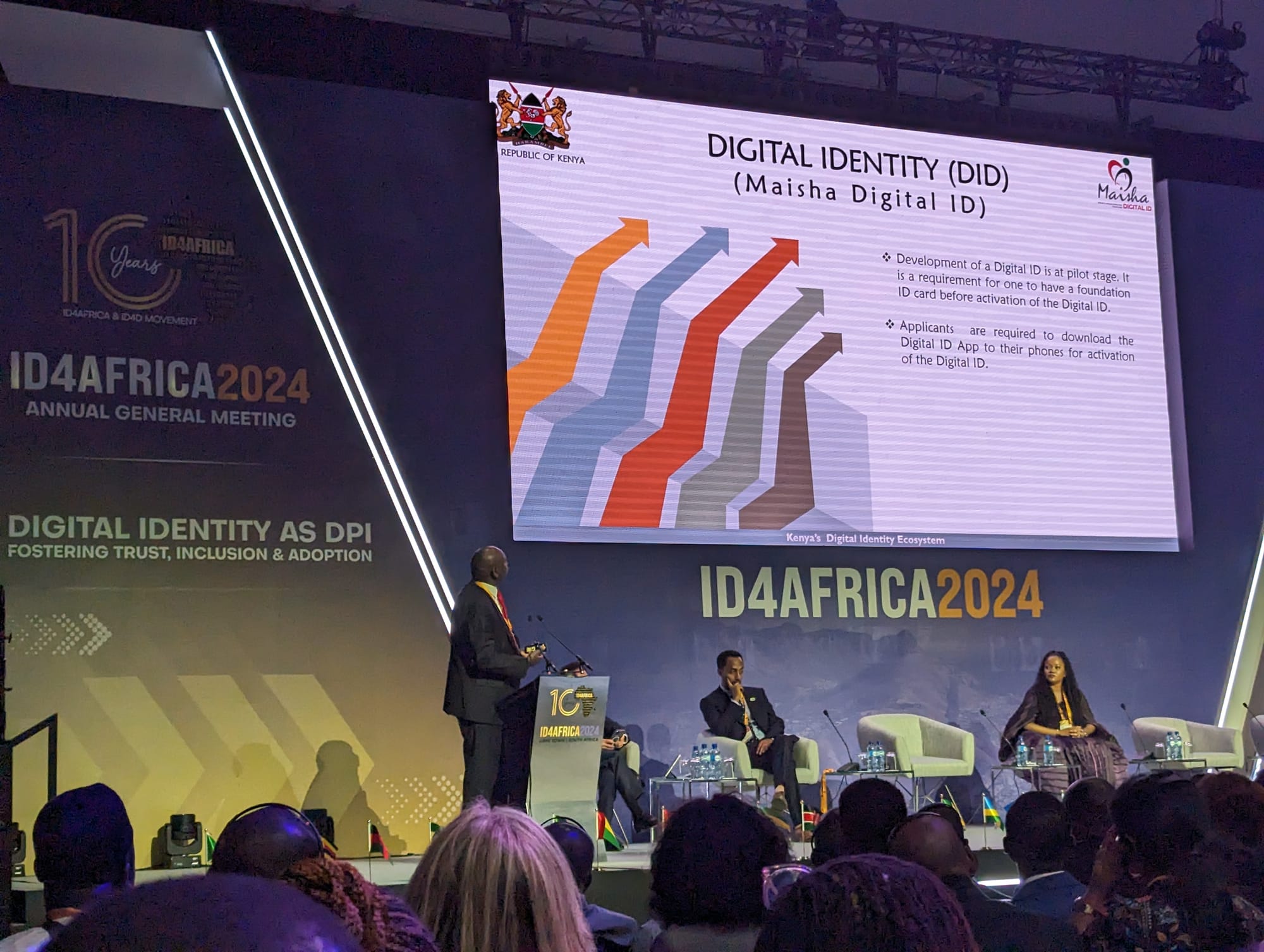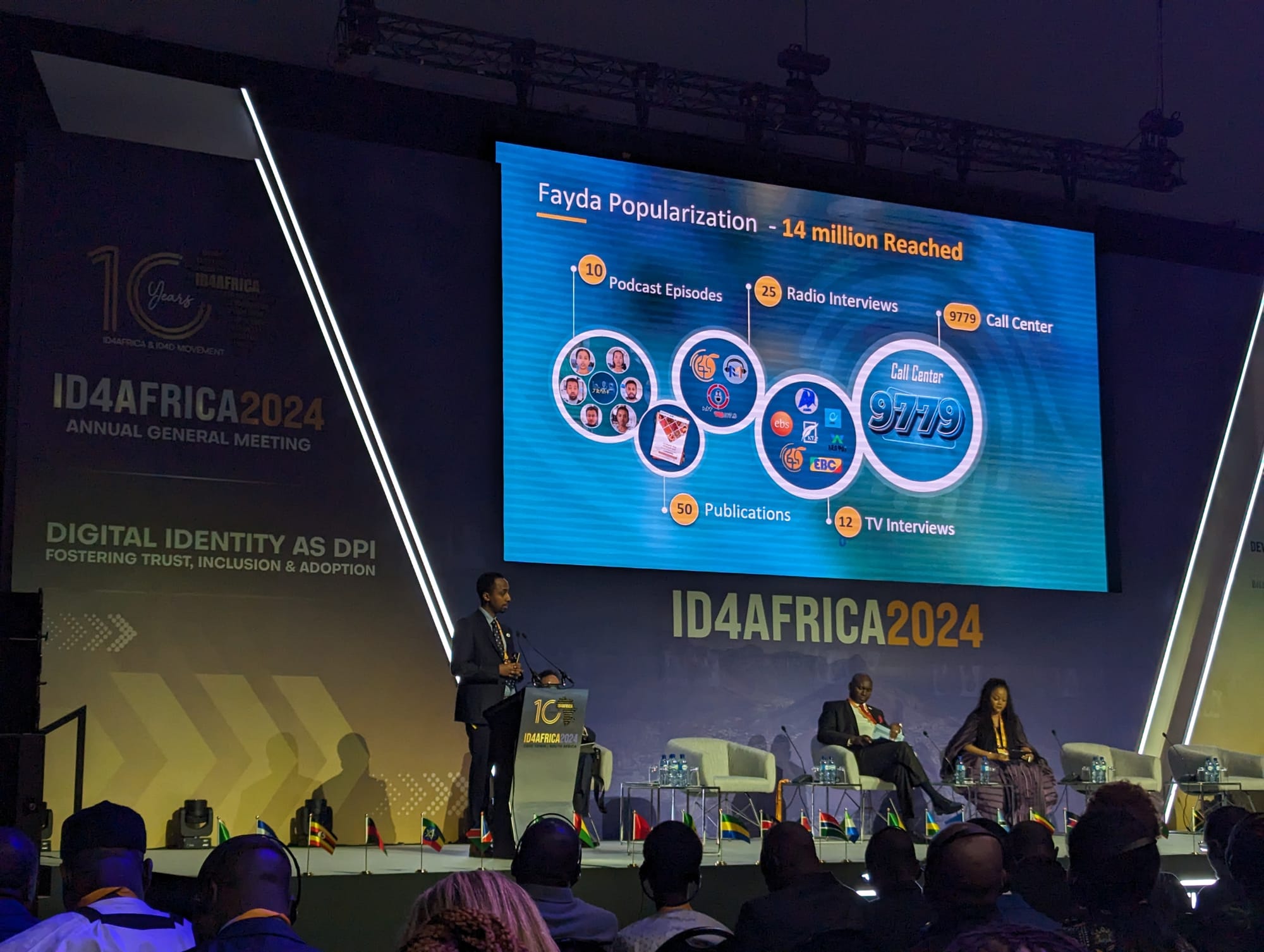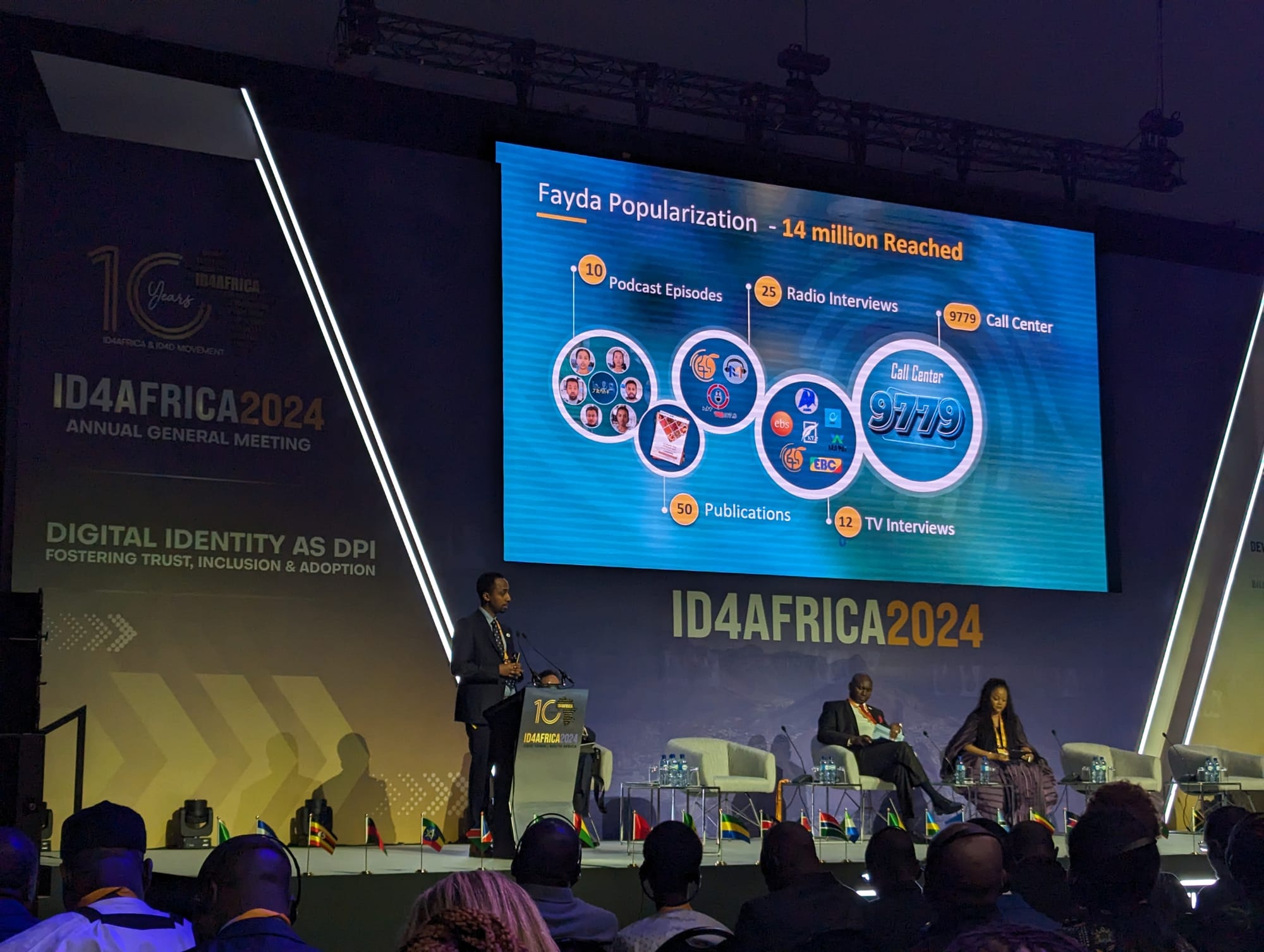DIF SC members and staff are among 2000+ participants from 101 countries participating in the ID4Africa 2024 AGM in South Africa.
Almost half of the delegates present at the event in Cape Town are representing African governments, as the ID4Africa movement celebrates its tenth year. The opening morning was rich with strategic and operational insights, including
- The stakes are high. Digital identity is critical to "defeating the scandal of invisibility" and ensuring equal access to education, healthcare and economic opportunity, according to Mr Mthiyane, policy director of South Africa's Department of Home Affairs
- Optimism tempered by realism. Digital identity is growing fast, but it's still early days. It has taken 30 years for e-passports to reach universal adoption, and ID4AFrica Executive Chairman Dr Atick expects a similar timescale for full adoption of digital ID, though this will be on a bigger scale
- Theory versus reality. Some believe citizenship and access credentials should be kept separate. In practice, "You can't think of the technology without considering the national context" Dr Atick stated. This was borne out by the accounts of countries with multiple or porous borders, where establishing citizenship is a key step, though not all services require it

- Need for policy and technology alignment. In a poll taken during the initial plenary session, 88% believed a policy requiring a unique National ID Number (UID) to access services should be a priority for lawmakers. Such a policy comes with its own challenges, including how to address the risk of exclusion and safeguard citizens' privacy.
- Mix of physical and digital credentials. ID cards are not about to disappear. Most if not all of the programs outlined by speakers combine a UID (often linked to birth registration), a physical card and a digital ID (usually stored and presented via a mobile app). Most programs have adopted a multi-modal approach, with enrollment, authentication et cetera possible online, offline and in-person. That said, digital identity is seen as an important tool to accelerate progress towards Identity For All (UN Sustainable Development Goal 16.9). For example, Malawi's digital ID scheme has helped it transition from a situation where most citizens lacked any legally recognised ID in 2017, to being on track to become the first African country to achieve UN SDG 16.9.

- Digital identity as Digital Public Infrastructure (DPI). This is the overall theme for the 2024 AGM and was reflected in several panel discussions after the lunch break focused on public policy. A number of related questions were discussed, including how countries can leverage digital identity programs to bootstrap a wider DPI while avoiding being locked into any particular technological approach or stack. Uganda's UGHub team shared that they are pursuing a strategy to establish DPI using protocols, not point solutions. Benefits include 100% uptake of electronic Know Your Customer (eKYC) by banks and the rapid deployment of e-signatures across many sectors. "I urge you to look at UGHub as an example of how to successfully establish DPI" Dr Atick commented.
- Evolving privacy approaches. Most schemes rely on centralized databases to store foundational ID data. Privacy and security measures include UID randomization, data encryption, strong access management (including requiring government agencies to prove compliance with privacy laws), explicit user consent for data sharing and tokenized / decentralized authentication. Interest in standards-based privacy enhancing technologies such as decentralized identifiers and verifiable credentials is growing.

These insights elicited many challenging questions from the audience.

Implementation insights from Ethiopia's Fayda ID program
DIF Steering Committee member Yodahe Zemichael kicked off the presentations from national ID teams by providing an update on Ethiopia's Fayda program.

Launched in 2022, Fayda provides a foundational ID for citizens and refugees. Key achievements to date include
- Personal data regulation passed, creating a strong foundation for Fayda acceptance and uptake
- integrated 44 organisations including banks and telcos covering more than 60% of the population, enabling them to securely onboard customers
- Started authentication for real-time KYC by relying parties - currently processing 8,000 requests per day

Mr Zemichael described the key points of Ethiopia's strategy for digital credentials:
- Enabling citizens to download a legal ID credential as a printable document with embedded QR code, share via a mini-app or show as a plastic printed card (all 3 are equally accepted)
- Enable online and offline authentication for eKYC. Most authentication is offline to date (via an authenticator app). This is beneficial for privacy, and Mr Zemichael believes it will continue to be the mainstay of KYC processes for some time
- Security and privacy are of utmost importance. The national ID team is looking to support W3C Decentralized Identifier (DID) standards in time

Mr Zemichael shared valuable learnings from the Fayda rollout, including
- Strong demand for physical credentials - requires printed cards to be delivered to citizen's homes
- Enrolling people is an expensive affair including extensive educational activities plus a physical presence in multiple locations. As a result, Fayda is being scaled up gradually
- Importance of citizen education and support, including a national call centre which is open 6 days a week and fields a high volume of queries
The day wrapped up with a fascinating session on DPI, that showed the wide range of approaches being adopted by African nations. Three examples illustrate this diversity
- Zambia started by digitizing healthcare records, as this was the most urgent use case. The national ID team is now looking at which outputs can be re-used in other use cases, creating opportunities to build DPI 'on the fly'
- Senegal started by identifying digital assets that already existed within different agencies. The country is now building a federation scheme that enables all agencies to leverage these assets
- Malawi adopted a 'greenfield' approach that capitalizes on the previous lack of identity infrastructure, enabling the country to create a best-practice digital ID program from scratch without needing to integrate legacy systems and platforms

Dr Atick wrapped up the first day's proceedings by concluding that Africa has talent, digital public infrastructure and choice.
More updates from the DIF team tomorrow!
